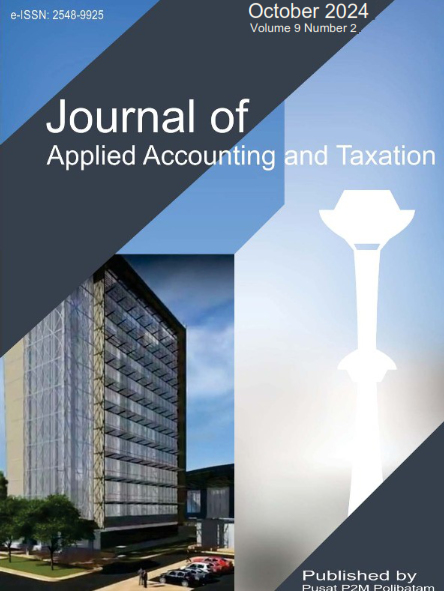Leading Indicators of Tax Revenue: Does Government Spending Matter?
DOI:
https://doi.org/10.30871/jaat.v9i2.7579Keywords:
expansionary fiscal policy, government expenditures, leading indicators, spend-tax hypothesis, tax revenuesAbstract
Indonesia's tax ratio has shown a declining trend over the past fifteen years. Tax revenue is an essential component in the provision of public goods and services. Therefore, it is vital to empirically examine the leading indicators that determine tax revenues. One of the concepts underlying the determination of tax revenue is the spend-tax hypothesis. This hypothesis states that the fiscal authority will determine the level of government spending and tax revenues will be targeted accordingly. The objective of this study is to empirically examine the leading indicators of aggregate tax revenues and its components and whether government spending is a determinant. In developing the estimated model, this study utilizes existing literature and the results of focused group discussions conducted with the Directorate General of Budget, Indonesian Ministry of Finance. This study utilizes monthly data to be more accurate in identifying trend changes and to get better estimates for strategic long-term forecasting, as required by fiscal authorities. To capture information affecting tax revenue and to overcome spurious regression, this study uses Partial Adjustment and Autoregressive Models. Those are consistent with the nature of determination of government budget in Indonesia which considers the values of past variables. The estimates show that government expenditure is an essential variable affecting tax revenue and its components, implying that government spending encourages economic activity. Since government spending is the dominant variable in affecting tax revenue and its components, expansionary fiscal policy can be implemented to increase total tax revenue and its components.
Downloads
Downloads
Published
How to Cite
Issue
Section
License
Copyright (c) 2024 Artidiatun Adji, Diny Ghuzini

This work is licensed under a Creative Commons Attribution-ShareAlike 4.0 International License.











